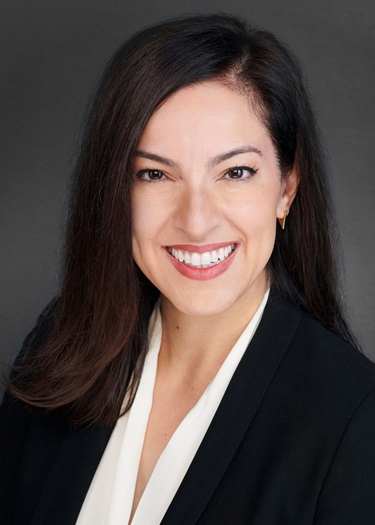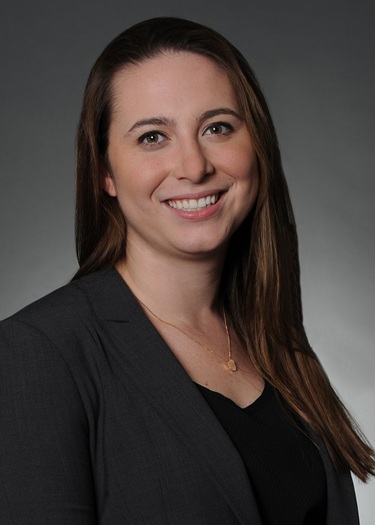On May 3, 2023, the U.S. Securities and Exchange Commission (SEC) voted to adopt amendments to Form PF (Amendments), the confidential reporting form filed by certain SEC-registered investment advisers to private funds. The Amendments significantly expand the reporting obligations of affected advisers, including new requirements to report the occurrence of certain triggering events in a truncated timeframe. The new reporting requirements introduced by the Amendments include:
- reporting of “current reporting events”1 at a qualifying hedge fund as soon as practicable after occurrence but no later than 72 hours after occurrence for advisers with at least $1.5 billion in hedge fund AUM (large hedge fund advisers)
- quarterly reporting within 60 days of quarter-end of “private equity reporting events”2 for advisers with at least $150 million in private equity fund AUM (private equity fund advisers)
- enhanced3 annual reporting for private equity fund advisers with at least $2 billion in private equity fund AUM (large private equity fund advisers)
A full summary of the new reporting requirements can be found in the SEC Fact Sheet. The Amendments will become effective six months after publication in the Federal Register as they relate to current event reporting for large hedge fund advisers and quarterly reporting for private equity fund advisers and one year from the publication date for enhanced reporting by large private equity fund advisers.
Our Take
The adoption of the Amendments continues the SEC’s sustained focus on the private funds industry and creates additional monitoring and reporting obligations to already resource-constrained compliance teams. Consistent with several other recent rule proposals, SEC Chair Gary Gensler cites the growth of the private funds industry over the past decade ($20 trillion in AUM as reported on Form PF) and its increasing interconnectedness with the broader capital markets as the driving force behind the SEC’s push for increased transparency and oversight of private funds and private fund advisers. Additional proposals relating to private fund advisers are already under SEC consideration, including further proposed changes to Form PF. Private fund advisers should keep these other proposals in mind as they undertake efforts to implement policies and procedures to address these new Form PF requirements. We expect private funds and private fund advisers to continue to be a core focus area of SEC regulation.
Key Changes From Proposed Version
While the final version of the Amendments generally includes the core elements of the proposed rule issued on January 26, 2022, the SEC did make a number of key changes in response to comments received from industry participants and trade organizations including the following:
|
Proposed |
Adopted |
|
Large Hedge Fund Advisers |
|
|
Report “current reporting events” within one business day |
Report as soon as practicable but no later than 72 hours after occurrence |
|
Hedge Fund Advisers |
|
|
Report a significant decline in holdings of unencumbered cash |
Not adopted |
|
Private Equity Fund Advisers |
|
|
File event reports within one business day |
Reporting within 60 days of quarter-end |
|
Reporting of general partner and limited partner clawback events within one business day |
Included with annual reporting |
|
Large Private Equity Fund Advisers |
|
|
Lower the reporting threshold from $2 billion in private equity fund AUM to $1.5 billion |
Not adopted |
|
Addition of a definition of “digital assets” to the Form PF glossary |
Not adopted at this time; the SEC noted it is continuing to consider comments and may revisit at a later date |
|
Large Liquidity Fund Advisers |
|
|
Advisers with at least $1 billion in combined money market and liquidity fund AUM to report substantially the same information money market funds would report on Form N-MFP as it proposed to amend it in December 2021 |
Not adopted at this time; the SEC noted it is continuing to consider comments and may revisit at a later date |
Anticipated Effects of New Reporting
The SEC states that the new reporting requirements will facilitate Financial Stability Oversight Council (FSOC) monitoring of systemic market risk and further the SEC’s goal of protecting investors. The impact of the Amendments on FSOC ability to monitor systemic risk and mitigate investor harm remains unclear. However, a very likely consequence of the new reporting requirements will be an increase in regulatory examinations and enforcement actions by the SEC involving private fund advisers, especially those who report certain triggering events. In his dissenting statement, Commissioner Mark Uyeda addresses this point: “[T]he Commission now seeks to expand Form PF to serve as a fishing expedition on private funds, the costs of which will be passed on to fund investors. If anything, today’s amendments will serve merely as a trigger to initiate enforcement actions or targeted examinations against private funds.”
Next Steps
Compliance with the Amendments will need to occur within a relatively short timeframe: six months for certain reporting requirements and fund advisers. Form PF filers, particularly large hedge fund advisers that will need to adopt the 72 hours current reporting timeframe, should
- conduct a review of policies, procedures, and back-office operations well in advance of the compliance date in order to prepare any updates needed to operational workflows and information tracking to meet the new reporting obligations
- update policies to reflect new procedures to monitor for and identify reporting events upon occurrence in order to meet the filing deadlines, for example
- tracking performance calculations to identify losses equal to or greater than 20% of the “reporting fund aggregate calculated value”
- identifying margin increases above 20% “reporting fund aggregate calculated value” threshold on a 10-day lookback
- determining when the adviser or reporting fund experiences a “significant disruption or degradation” of the reporting fund’s “key operations”
- clearly designate the parties responsible for monitoring for events that would trigger Form PF reporting
- train employees on and conduct testing of the procedures for identifying and escalating potential filing events in advance of the compliance date
- adopt procedures for identifying reporting triggering events, including those occurring in the ordinary course of business that fall into the definition of a current reporting event necessitating immediate identification and filing
- familiarize themselves with all potential triggering events for filings and assess how their particular line of business could potentially be affected
Many events that occur in the ordinary course of business will fall into the definition of a current reporting event necessitating immediate identification and filing given the breadth of some of the triggering events. Policy updates and modifications as well as operational changes may be necessary to address these new reporting requirements. Therefore, advisers should begin the process of assessing the impact to their business well ahead of the compliance dates.
1 Current reporting events include extraordinary investment losses, certain margin events, counterparty defaults, material changes in prime broker relationships, operations events, and certain events associated with redemptions.
2 Private equity reporting events include execution of adviser-led secondary transactions and investor elections to remove a fund’s general partner or to terminate a fund’s investment period.
3 Enhanced reporting includes information on implementation of limited partner and general partner clawbacks and additional information relating to fund investment strategies and fund-level borrowing.
Attorney Advertising—Sidley Austin LLP is a global law firm. Our addresses and contact information can be found at www.sidley.com/en/locations/offices.
Sidley provides this information as a service to clients and other friends for educational purposes only. It should not be construed or relied on as legal advice or to create a lawyer-client relationship. Readers should not act upon this information without seeking advice from professional advisers. Sidley and Sidley Austin refer to Sidley Austin LLP and affiliated partnerships as explained at www.sidley.com/disclaimer.
© Sidley Austin LLP



